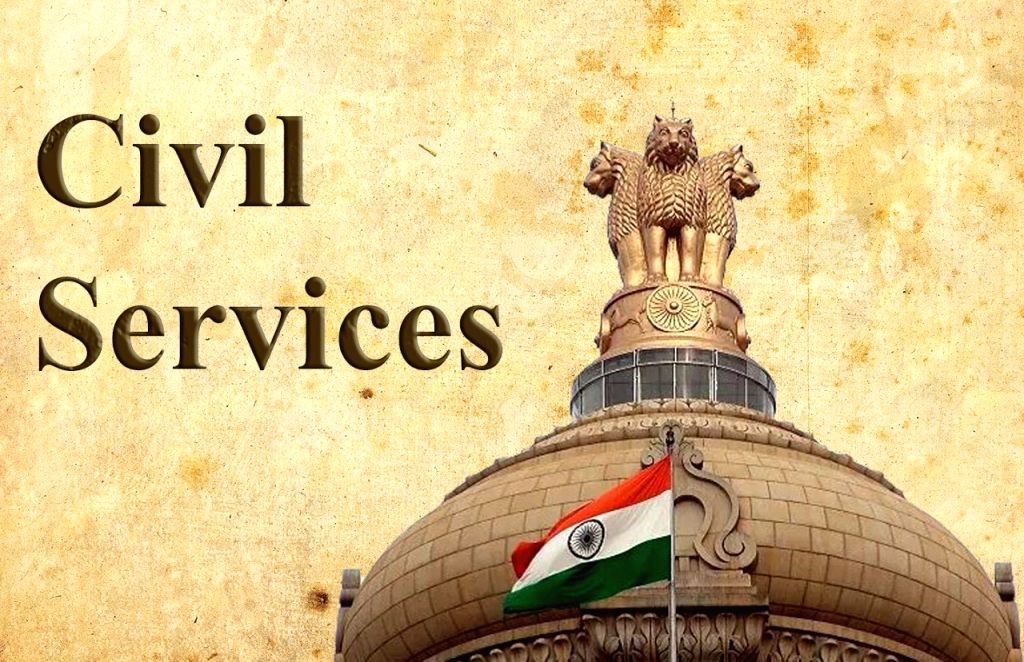Civil services are the cornerstone of India’s administrative machinery. While elected representatives change with every election cycle, civil servants—often termed the permanent executive—ensure continuity, stability, and impartial governance. Tasked with the crucial responsibility of implementing laws and delivering public services, the civil services play a pivotal role in nation-building, socio-economic development, and policy enforcement. As India navigates complex governance challenges in the 21st century, the relevance and performance of its civil services remain central to the country’s democratic and developmental aspirations.
Core Responsibilities of Civil Services
- Implementing Government Policies and Programs: Civil servants translate legislative intentions into actionable outcomes. From drafting detailed implementation frameworks to coordinating across departments, they ensure the delivery of flagship schemes such as the PMAY, MGNREGA, or Digital India.
- Ensuring Continuity of Governance: As apolitical functionaries, civil servants provide institutional memory. Whether during a change of government, imposition of President’s Rule, or national emergencies, they ensure uninterrupted administrative functioning.
- Formulating and Shaping Policy: Senior civil servants contribute significantly to policy formulation by offering expert advice, drafting bills, and preparing Cabinet notes. Their domain experience and bureaucratic insights often shape the contours of major legislation.
- Promoting Socio-Economic Development: Civil servants oversee developmental planning, implement welfare schemes, and monitor inclusive growth indicators. They are responsible for the equitable distribution of resources, especially in rural and underserved areas.
- Disaster and Crisis Management: Whether it is managing natural disasters, coordinating pandemic response, or restoring order during communal unrest, civil servants act as first responders. Their leadership in crisis situations determines the efficiency of governmental response.
- Maintaining Law and Order: The Indian Police Service (IPS) and administrative officers at the district level work to maintain public order, manage law enforcement, and uphold constitutional rights through policing and magistrate functions.
- Administrative Adjudication: In various capacities—as district magistrates, commissioners, or tribunal members—civil servants act in quasi-judicial roles to resolve administrative disputes, grant approvals, and settle claims.
- Upholding Ethical Governance: Civil servants are expected to adhere to constitutional values, act without fear or favor, and promote transparency and accountability in public dealings.
Structural Classification of Civil Services in India:
- All India Services (AIS): These include the Indian Administrative Service (IAS), Indian Police Service (IPS), and Indian Forest Service (IFoS). Officers are recruited by the Union but serve both the Centre and States, promoting administrative cohesion across the federal structure.
- Central Civil Services: These officers work exclusively under the Union Government in departments such as the Indian Revenue Service (IRS), Indian Audit and Accounts Service (IA&AS), Indian Foreign Service (IFS), and others.
- State Civil Services: Recruited through respective State Public Service Commissions, these officers serve within the administrative structure of their respective states.
Why Civil Services Are Called the 'Permanent Executive'
Unlike the political executive, which is elected for a fixed tenure, civil servants hold office until retirement. This permanence provides administrative stability and ensures the long-term implementation of national goals. Acting as a bridge between successive governments, they carry forward development programs, maintain neutrality in governance, and provide continuity amidst political change.
Challenges Confronting the Civil Services:
- Erosion of Political Neutrality: Civil servants are increasingly seen as aligning with political interests, undermining their constitutional role as impartial implementers of policy.
- Political Interference in Postings: Frequent transfers based on political considerations disrupt policy continuity and demoralize officers.
- Generalist Dominance: Despite managing complex sectors like health, technology, and finance, many civil servants lack domain-specific training. This generalist approach often hampers evidence-based policymaking.
- Corruption and Red Tape: Delays in decision-making, procedural hurdles, and lack of accountability have made the system vulnerable to inefficiency and corruption.
- Underutilization of Technology: While e-governance initiatives have expanded, many departments still operate with outdated processes and resist digital transformation.
Merit System vs. Spoils System: The Indian Context:
India follows a merit-based recruitment system, primarily through the UPSC, ensuring that civil servants are selected through rigorous examination and training. In contrast, the spoils system, historically practiced in countries like the United States, allowed political leaders to appoint loyalists, often at the cost of administrative efficiency. While India has largely rejected the spoils system, increasing political appointments and lateral entries must be carefully regulated to preserve meritocracy.
Recent Government Initiatives and Reforms
- Lateral Entry Scheme: Introduced to bring in domain experts at the joint secretary level in ministries like agriculture, finance, and commerce.
- Mission Karmayogi: A competency-based capacity-building program aimed at improving the skills of civil servants through continuous training and digital learning.
- Performance-Based Evaluation: Digitization of appraisal systems and focus on key result areas (KRAs) to assess the effectiveness of officers.
- Fixed Tenure Policy: Encouraged to minimize arbitrary transfers and bring stability to administrative roles.
- Streamlining Central Deputation: Steps have been taken to democratize central postings among various services to ensure broader representation.
Way Forward:
- Strengthening Autonomy: Institutional mechanisms must be developed to shield bureaucrats from political pressures.
- Domain Specialization: Officers should receive sector-specific training and be encouraged to develop long-term expertise.
- Embracing Technology: Data-driven governance and AI-backed policy tools must be mainstreamed.
- Outcome-Based Governance: Evaluation should be based on social impact and service delivery rather than file movement.
- Promoting Diversity and Inclusivity: Representation from underrepresented communities and gender parity should be institutional goals.
Conclusion
The Indian civil services have long stood as a bulwark of democratic governance, capable of balancing the competing demands of development, equity, and administrative continuity. However, as India moves towards a more complex governance landscape marked by globalization, digital disruption, and citizen awareness, the civil services must undergo structural and cultural reform. Ensuring neutrality, enhancing professional capacity, and fostering innovation are no longer optional—they are essential. A future-ready, citizen-centric, and accountable civil service is key to realising the aspirations of a New India.
| Main question: While the civil services provide continuity in governance, their generalist nature often limits policy efficiency.” Examine this statement with suitable examples. |







